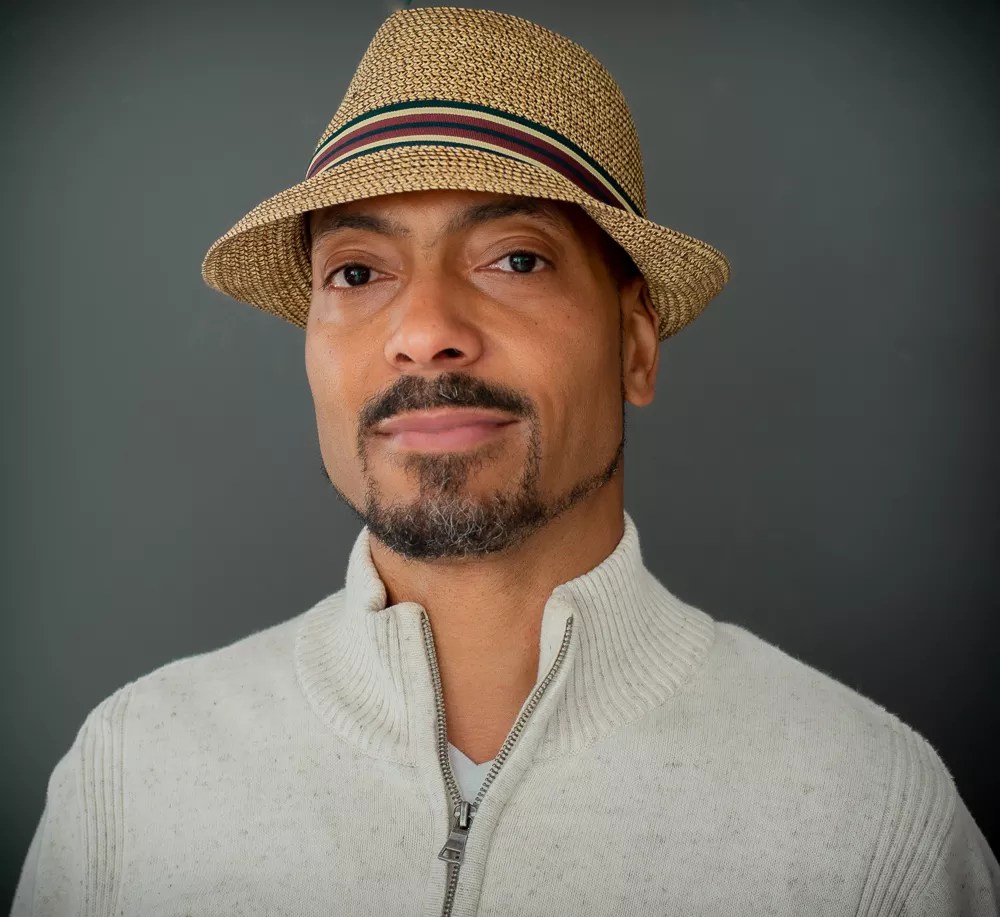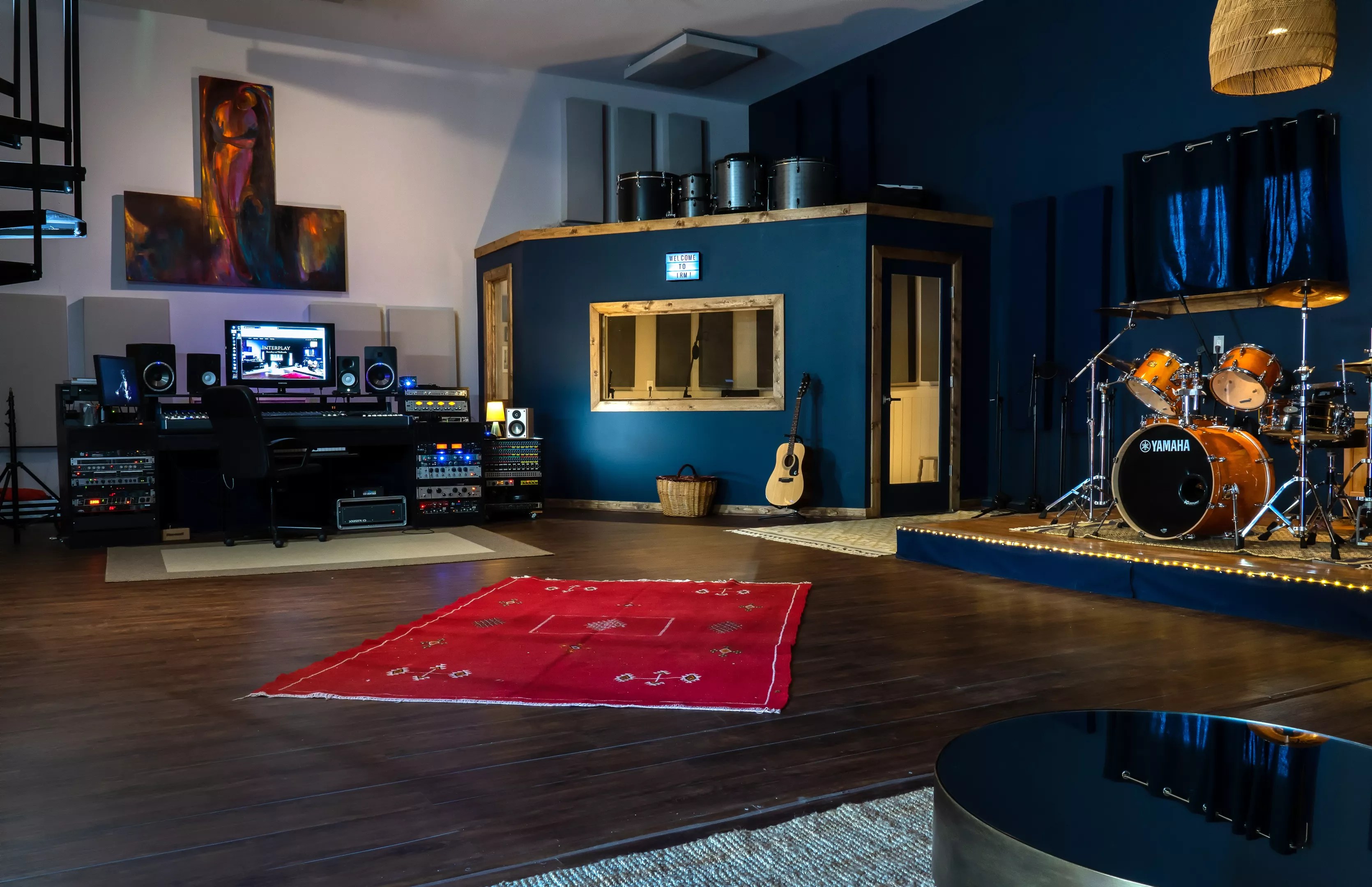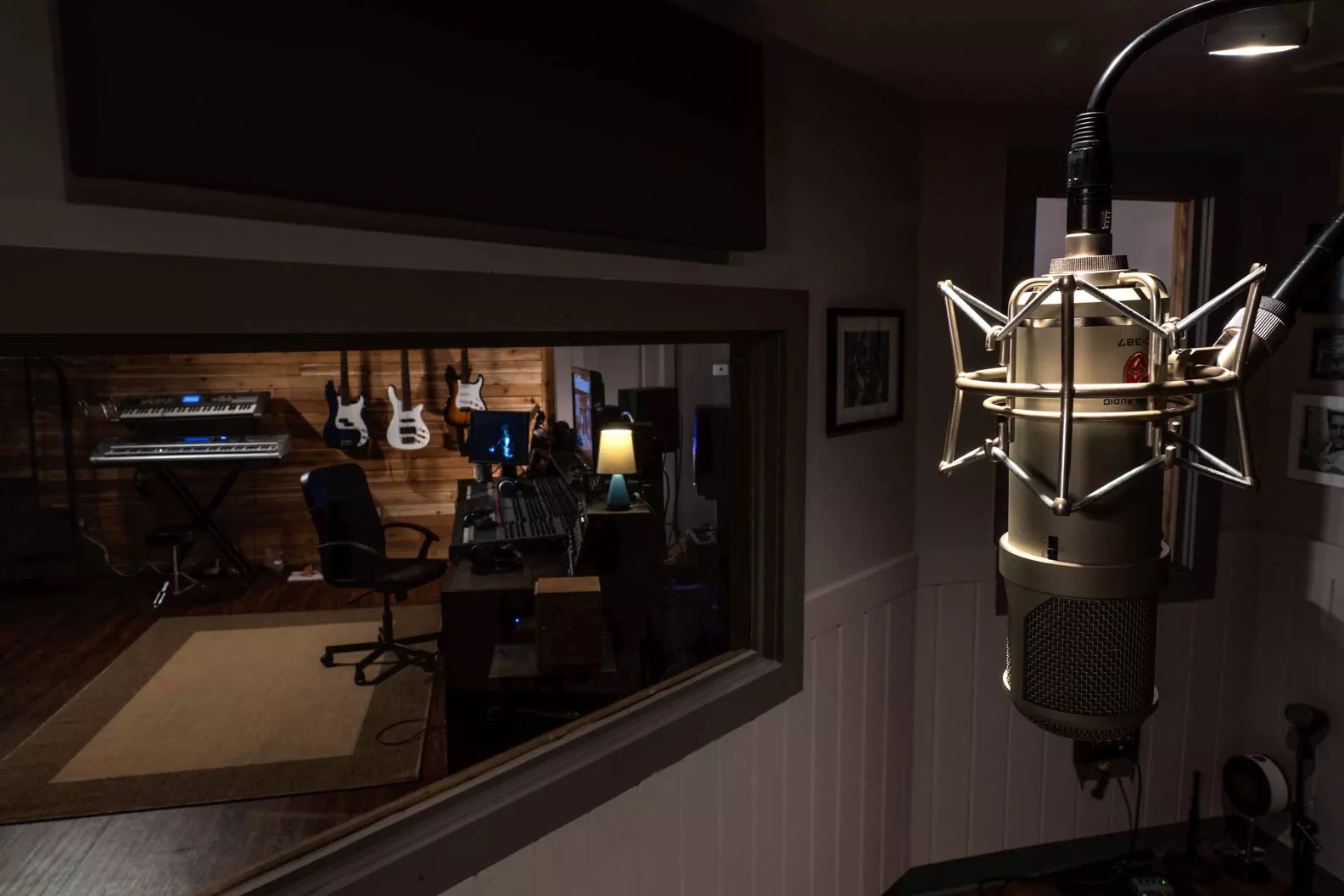
Ora A. Levi

Audio By Carbonatix
Tuviel Levi, music producer and owner of Interplay Recording and Multimedia studio in Boulder, has a long-term relationship with African drum music and reggae. When he was growing up in Brooklyn, New York, his father was part of an African drum circle.
“It was one of the first West African drum circles in the U.S. back then,” Levi recalls. “Back in the late ’80s, [my dad] would bring me, my sisters and brother to the drum circles at Prospect Park, and whenever there was an extra drum lying around, we’d ask if we could play it. That’s how my love of African drumming began.”
His love soon expanded when he and his family moved to Nigeria in 1989 for a year because of his father’s work. There Levi was able to get more hands-on experience with drum circles.
“Drumming and chanting is a major part of the African identity, as well as a major part of many of their religions,” he explains. “Particularly, the Yoruba and Vodun religions, which initially introduced African drumming to New York. Africa was amazing. Nothing I could say would give one a sense of what it’s like to live partially off the land like that, eat exotic fruits and vegetables that you’ve farmed and harvested and be able to partake in drum circles almost whenever.”
Levi also picked up various West African indigenous rhythmic styles and a stronger sense of gratitude during his stay.
“I mostly learned indigenous styles of drumming on the djembe, bata, udu and talking drums,” he explains. “My dad learned how to make and string djembes and batas at a young age from his extensive travels to West Africa and studying under local drum artisans, so we had lots of time and lots of instruments in our possession. I also learned some basic shekere skills while there. The biggest takeaway was seeing how happy everyone was no matter how little they had.
“Some people had no floors, no roofs, no running water, but their smiles were infectious and they hardly ever complained,” he adds. “I saw this as a stark contrast to how we Americans tend to view life. I think I learned the value of appreciation in Africa. Sometimes I find myself complaining about silly things just for the sake of complaining. I’ll sometimes catch myself and realize some people have it far worse!”
In 1992, Levi and his family emigrated to Israel to connect with their Jewish roots. Levi also enrolled in the Israeli Air Force. “Israeli military service is mandatory for all citizens,” Levi explains. “I was enlisted at the age of 21 and spent two years in the Air Force.”
After leaving in 1996 and getting an aircraft mechanic’s license around 1998, he started yearning for a career change. In 2001, he decided to enroll in a school in England and take a few music production classes for certification.
“I did that course to pass the time when I first arrived there in the U.K.,” he says. “I didn’t have a work visa at that time.”

In addition to recording music, Levi has also done audiobook recording.
Tim Reese
One day, executives from Rich Bitch Studios, which engineered works for Black Sabbath, Steel Pulse and more, visited the school Levi was attending.
“Rich Bitch Studios was looking for interns at the time, and asked for the most enthusiastic and dedicated student, and the staff recommended me,” Levi reminisces. “I was there for a year. It was an amazing experience working with some of their experienced engineers.
“After a few months, I was booked to assist with a punk-rock band,” he continues. “But the lead engineer didn’t show up. So I ran the session, and since the band didn’t even realize the main engineer didn’t show, the studio hired me as an in-house engineer after that session. It was super exciting – and nerve-racking at times, because I was pretty green.”
Another highlight of Levi’s internship was meeting and working with Selwyn “Bumbo” Brown and David Hinds of Steel Pulse, one of his favorite reggae bands.
“I was prepping for a session, and there were no senior engineers in the building,” Levi recalls. “Someone came up to my room and asked if I could help them troubleshoot some gear. I went downstairs to the rehearsal wing, and when I walked in, there was Selwyn and David. I helped them get the mixer working, and we struck up a conversation. I think they took to me right away due to my ‘Yankee’ accent, as they termed it.
“They invited me to hang out at their personal studio, where they were recording a new album, after they saw I had pretty deep knowledge of reggae and its history,” Levi adds. “After hanging with them periodically, they started asking my opinion on certain production aspects during the album recording. Selwyn was always trying to explore the new digital technology that was evolving, and kept asking me questions about how certain gear worked. I couldn’t really advise him, though, because I was pretty green back then. I just had good instincts, which Selwyn noticed straight away, and he encouraged me to keep writing and composing after hearing some of my music.”
Levi eventually moved to California in 2005 for new opportunities, including enrolling in California’s SAE Expression College’s sound arts and audio engineering program. He graduated in 2007.
“I think the biggest thing I learned at SAE was the importance of hard work and motivation,” he says. “I also learned a lot of stuff I hadn’t anticipated, as there were some pretty hard math courses, some psychology and literature courses and some other core studies that most students didn’t expect. That’s why the graduation rate wasn’t all that high at the time.”
He gained the skills to produce and create reggae music for drummer Bradley Brown, Adam Barnes, Queen Makedah and Michelle “Songbird” Gordon. He worked on these and other projects either at his California home studio or his former production partner’s studio, Dreadstone Productions, in south Florida.
Levi also produced a song for 2011 X Factor Finalist Chris Rene.
“I worked on a song with another producer friend of mine, drummer Bruce Benjamin of the Stamina Allstars,” he recalls. “He provided the drum bed, and I built the music around his drums. We were just having fun. He liked the final composition so much that he played it for Chris Rene one day, who is a friend of his, and he and Chris booked a studio right away and recorded the vocals. They sent it back to me for mixing, and that was that. I never even met Chris Rene in person. That’s the digital age of music for ya.”
He also met and married his wife, Ora, a clothing designer who currently owns a natural-fiber clothing line, in 2006. The couple decided to move to Colorado in 2014 because they wanted to enroll their sons in the highly ranked school systems and flee the California Bay Area earthquakes.
Levi launched his Interplay studio in 2018 – part of an attempt to live a regret-free life.
“You always hear stories about folks who never pursue their dreams and die with regret,” he explains. “My family really inspired me to start Interplay, my wife in particular. I think we had that conversation a few times amongst each other, and we both decided to pursue our passions as a full-time occupation and support each other. Boulder was the logical choice because we had recently moved here and had property with detached outbuildings we could renovate.”

Levi tells aspiring music producers to get a laptop, headphones, ideas, time and watch YouTube videos.
Tim Reese
Business for Interplay before the pandemic had its highs and lows. But Levi also incorporated audiobook recording, which helped the studio survive the pandemic.
“[I] had a particular client that would bring me lots of work,” he says. “As I got into the books, we would discuss the ins and outs of the audiobook business, and I started reaching out to audiobook production companies to do freelance editing and mastering to fill in the gaps, which happens to be the bulk of my bookings right now. I work on fiction as well as nonfiction titles and get to learn a lot of really interesting things while reading the scripts.
“A few recent titles I edited and mastered are Bravelands: Curse of the Sandtongue; Made in China: A Prisoner, an SOS Letter, and the Hidden Cost of America’s Cheap Goods; Keeping Guard; Metabolical; What It Is; The Tiger Queens: The Women of Genghis Kahn,” he says. “A few that I’ve recorded that I’m really happy to be part of recently are the two last books in the Avatar canon: Avatar: Rise of Kyoshi and Avatar: Shadow of Kyoshi.” I got to meet the author, F.C. Yee, during that series and record his author’s note!”
In the end, Levi hopes that aspiring music producers just go for it like he did with his career.
“The tools are available and super cheap,” he declares. “All you need is a laptop and headphones, some ideas and time. Watch YouTube tutorials and read up on whatever it is you want to learn. All the information is at your fingertips. I built my studio basically from scratch off the strength of YouTube videos. You can learn anything on the web.”
For more information about Tuviel Levi and Interplay Recording and Multimedia, visit his website.